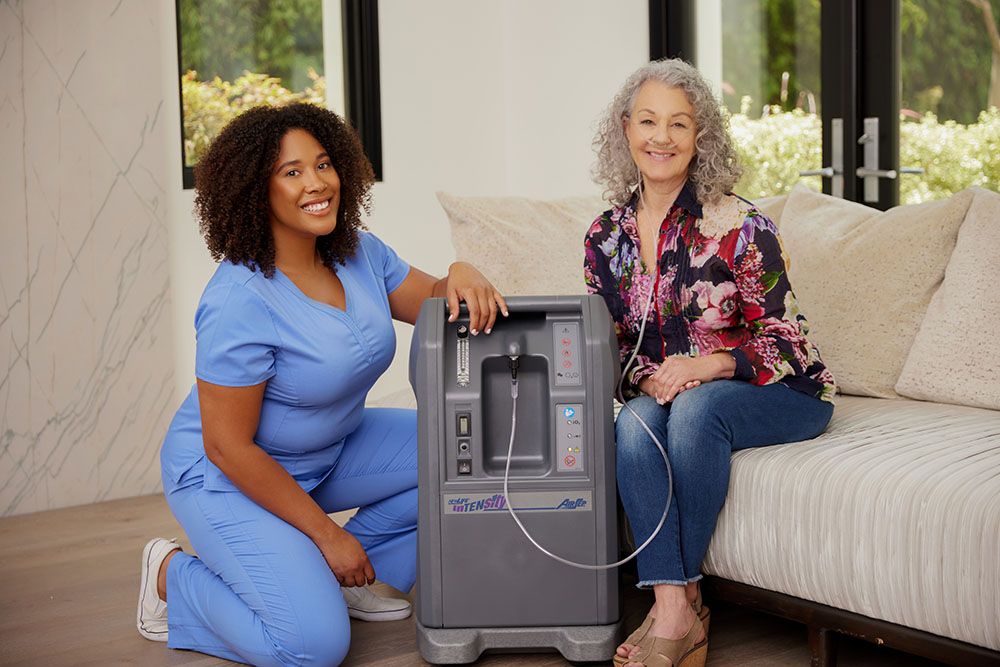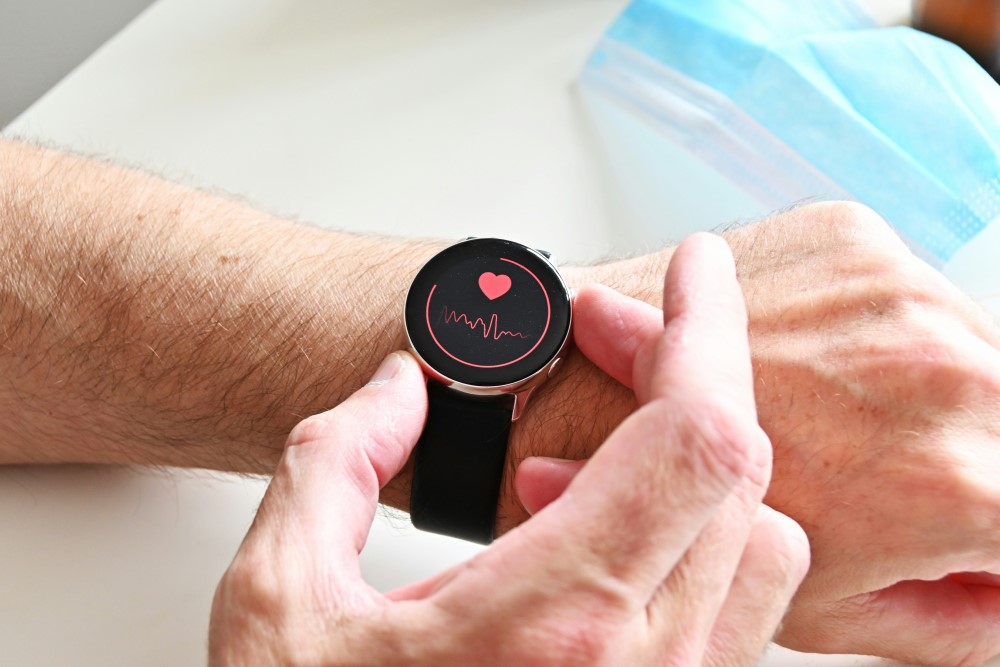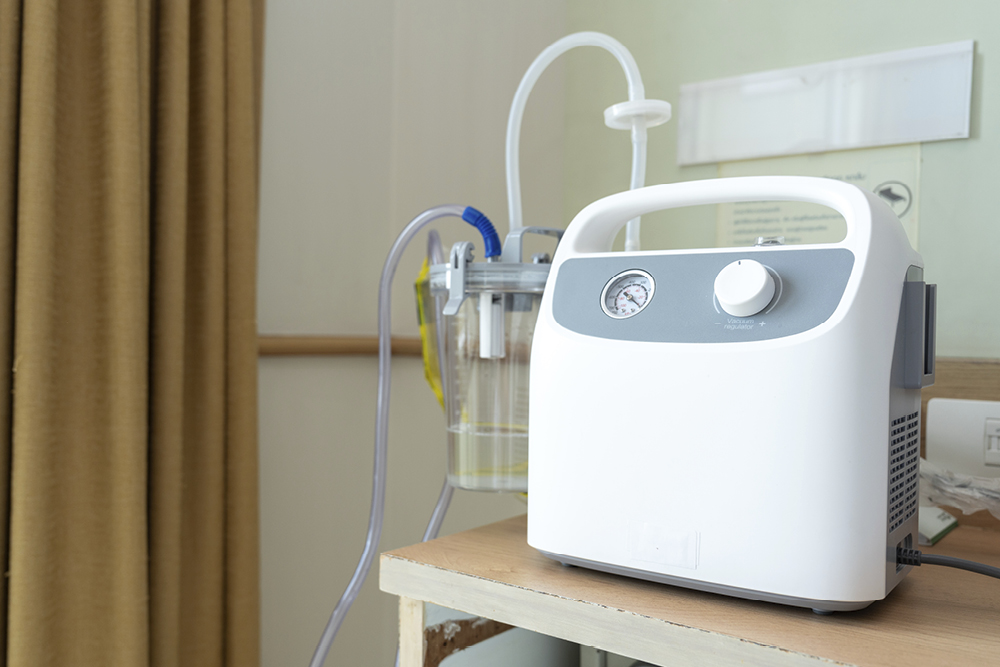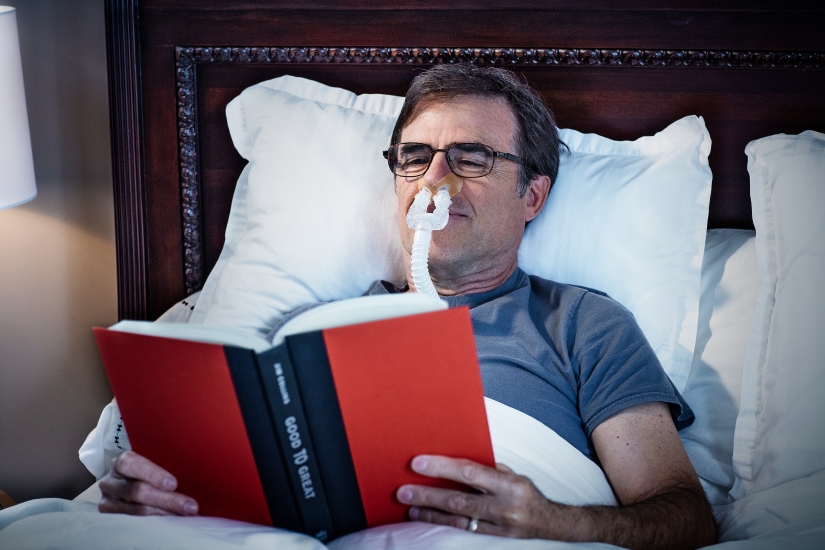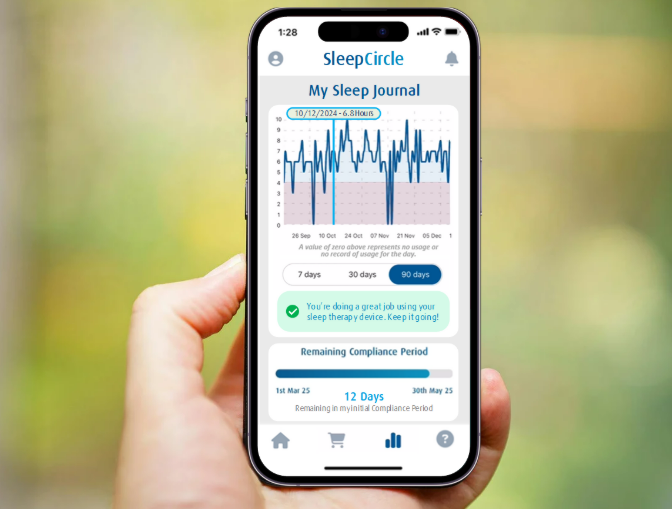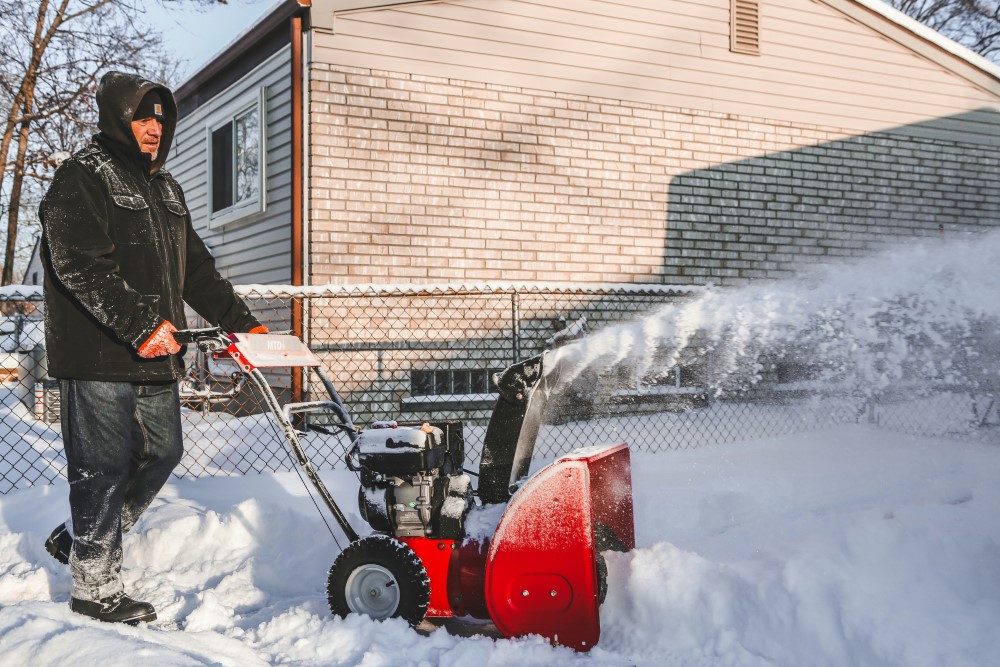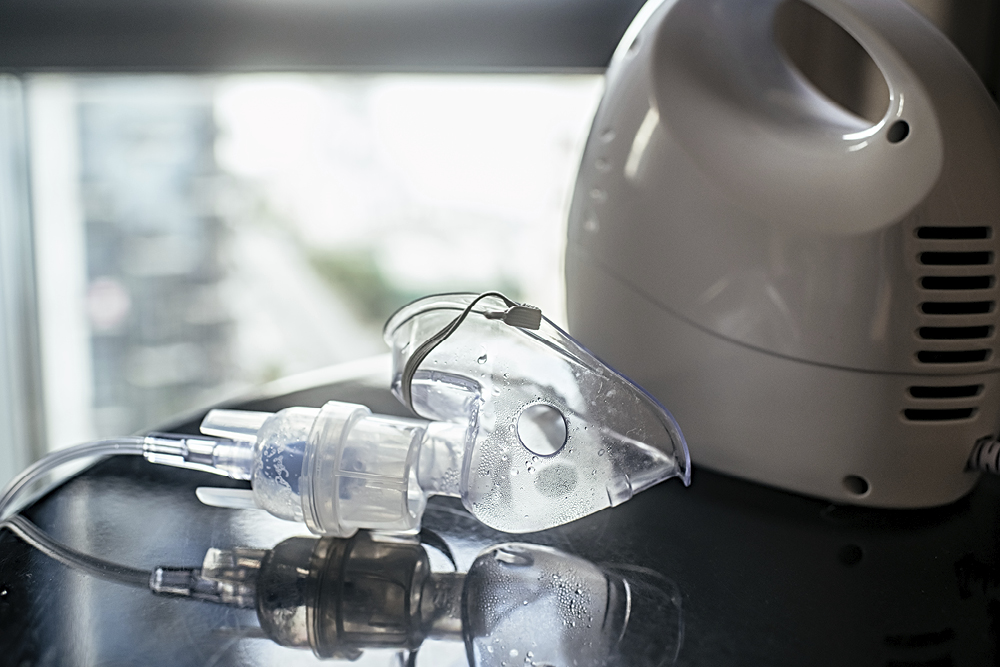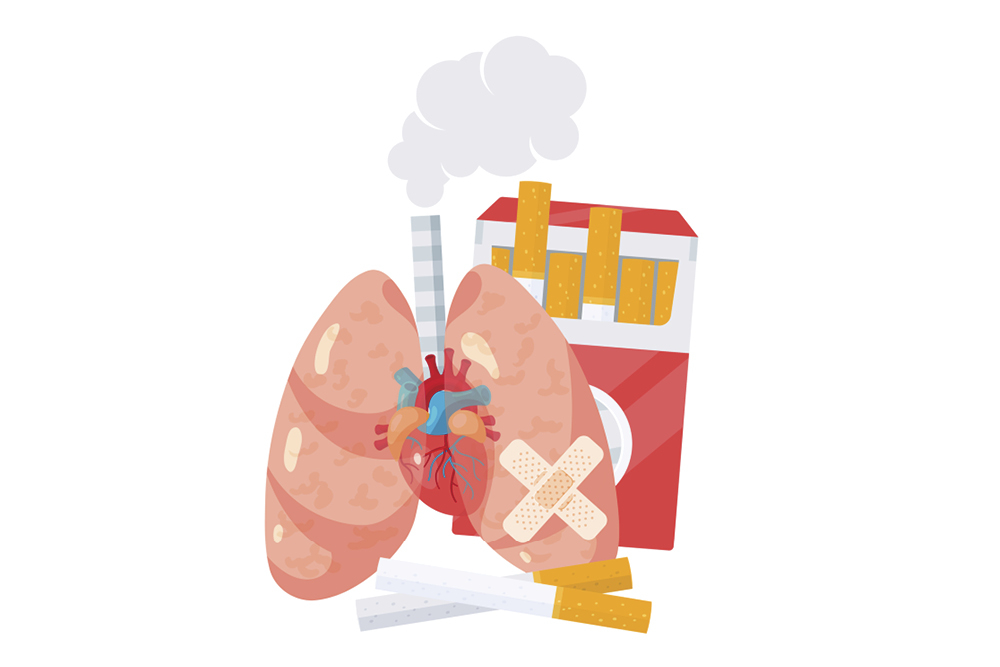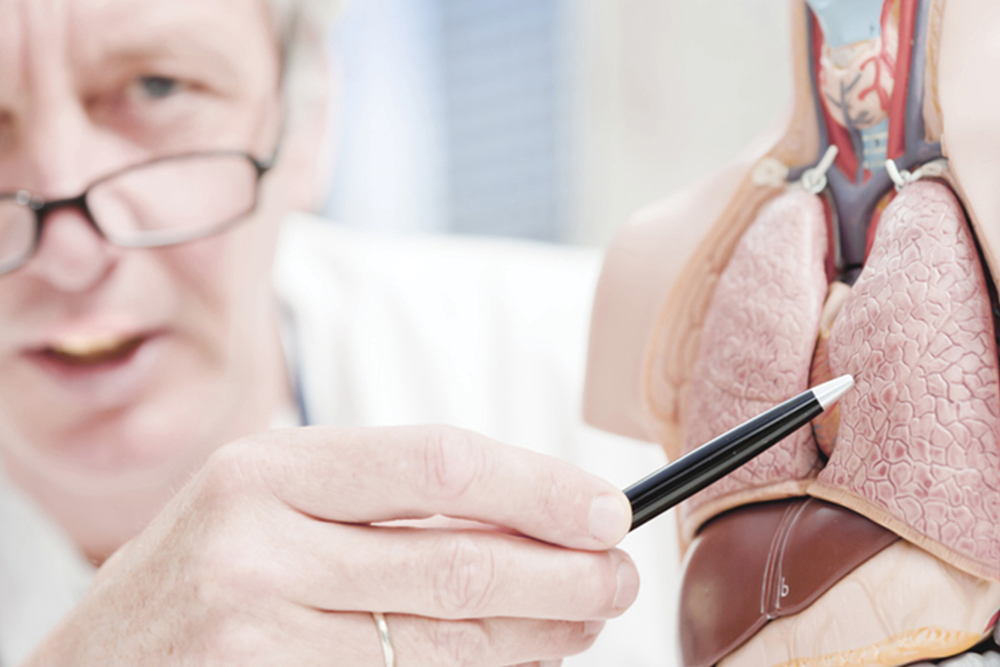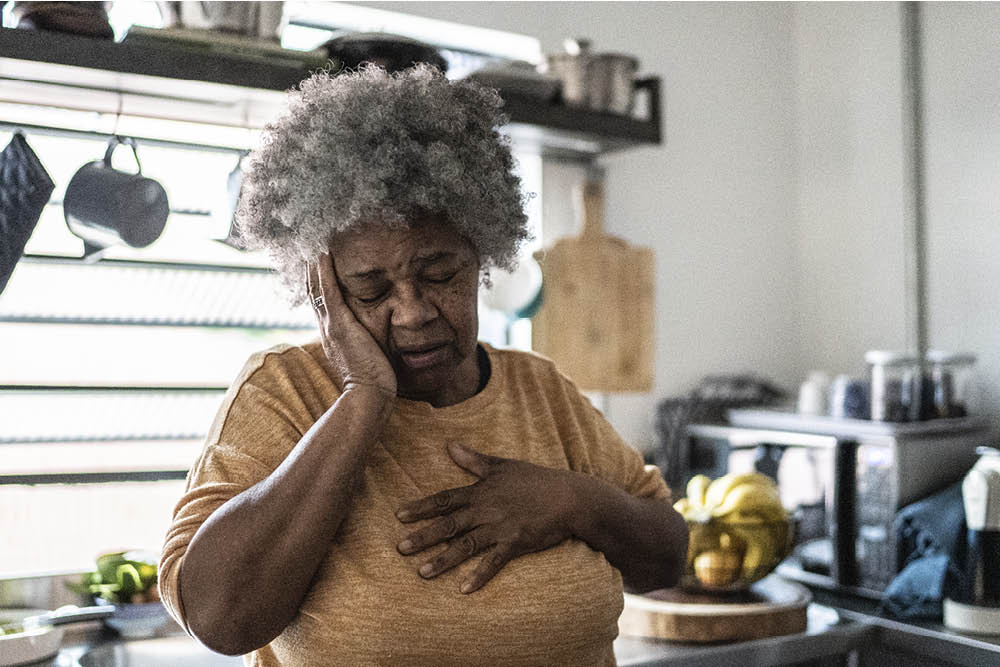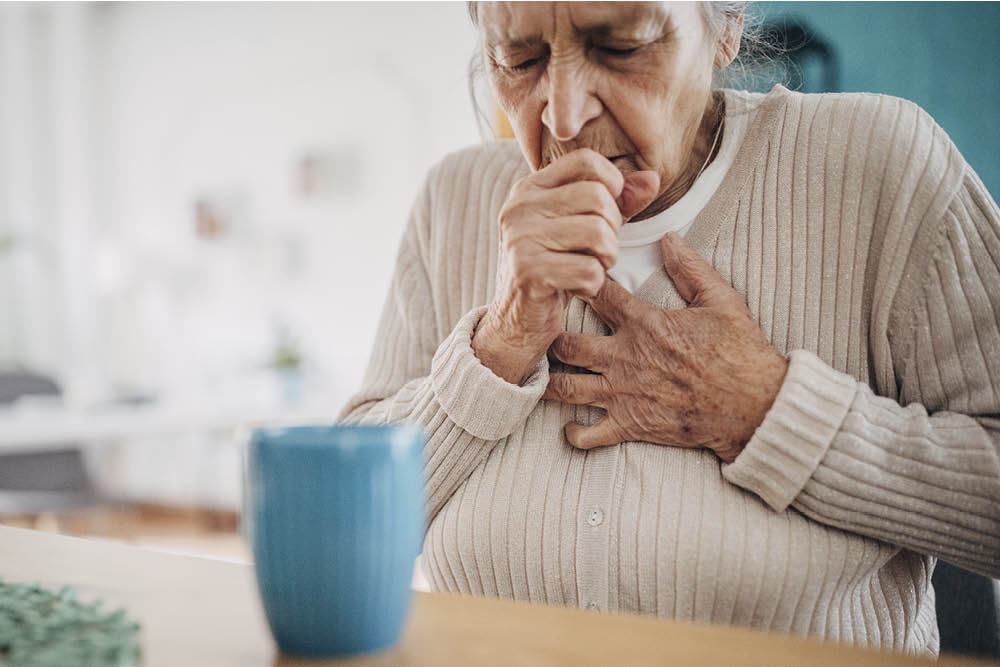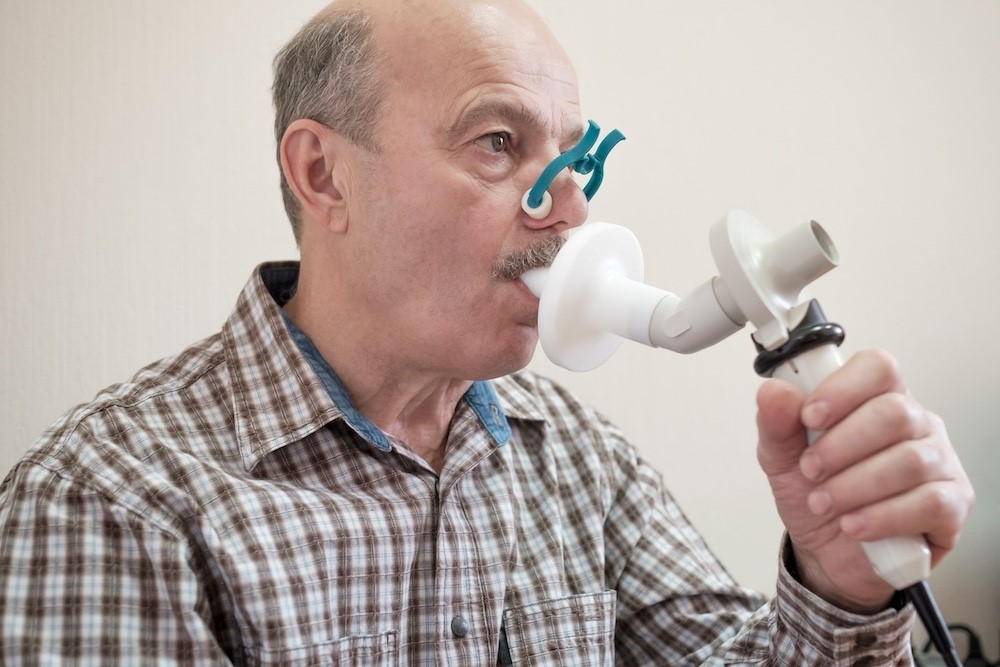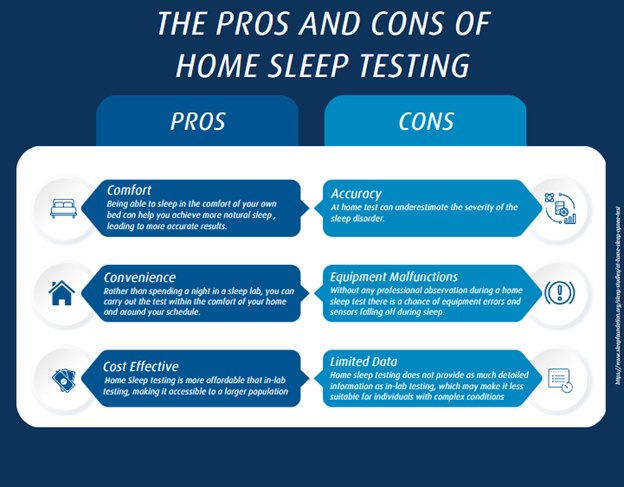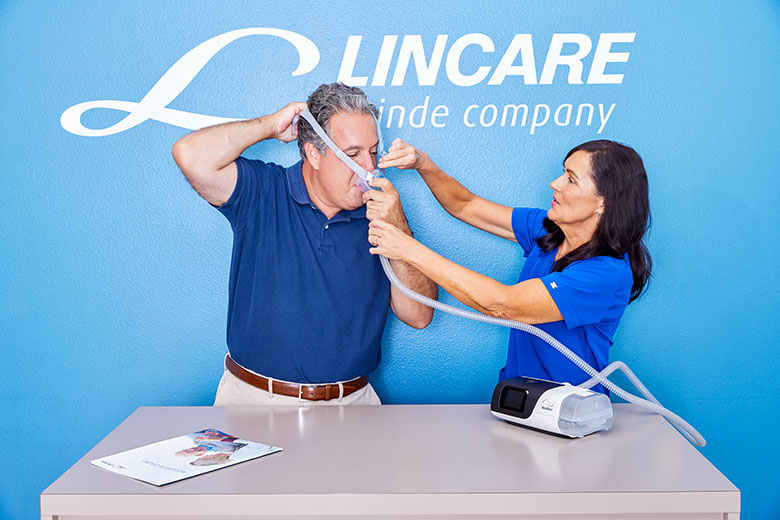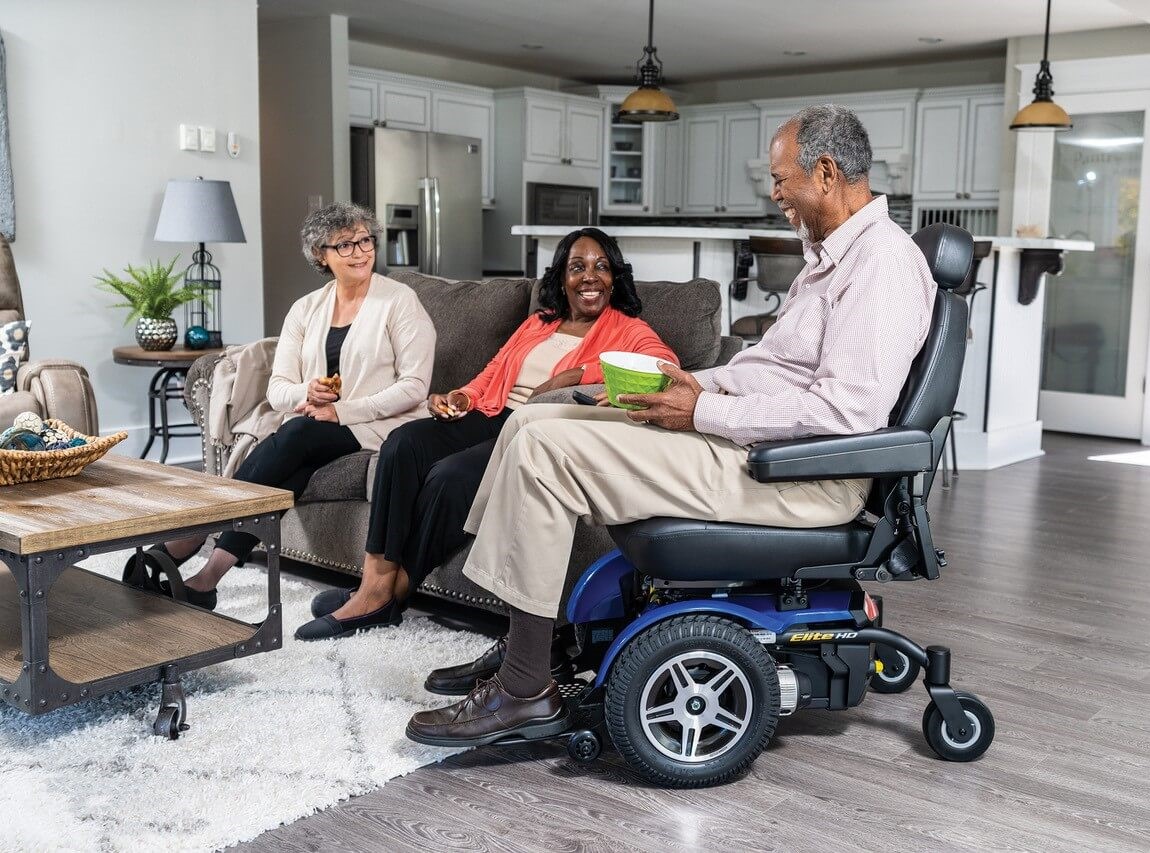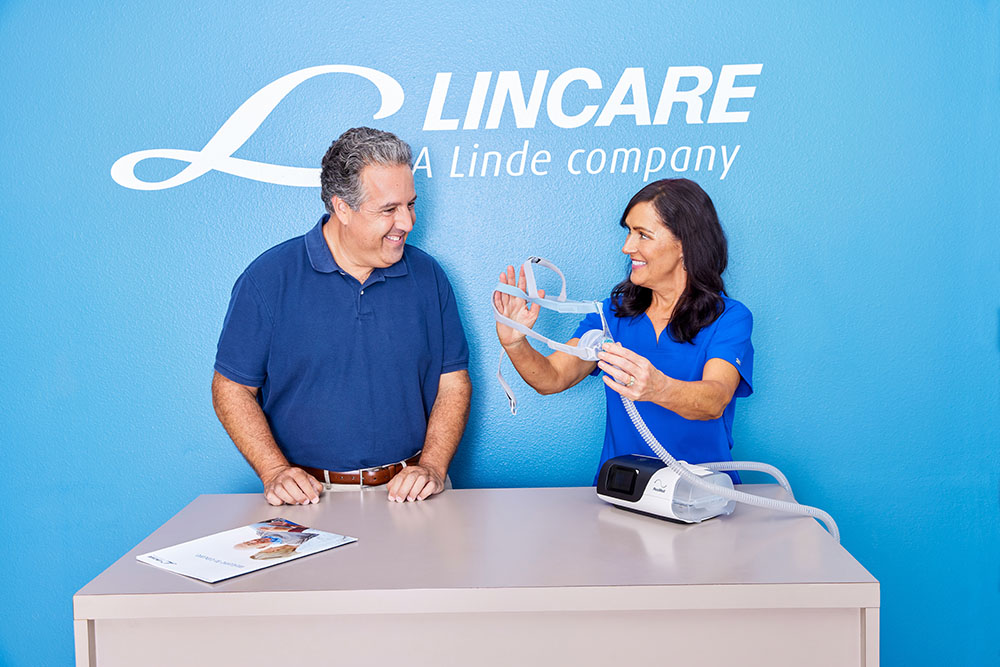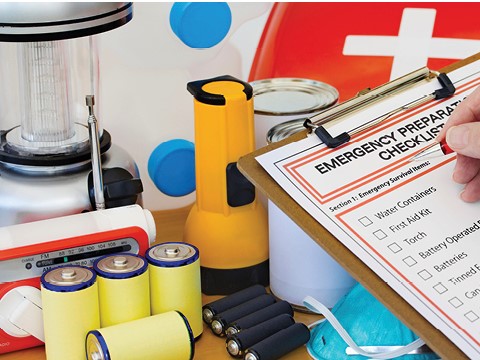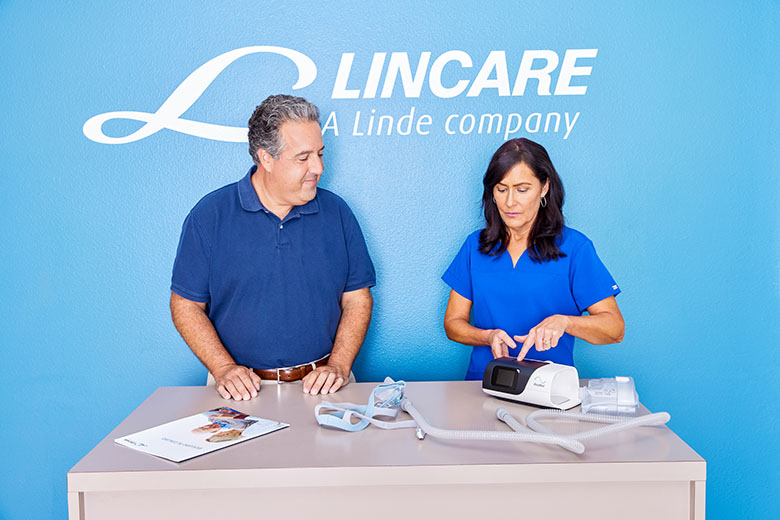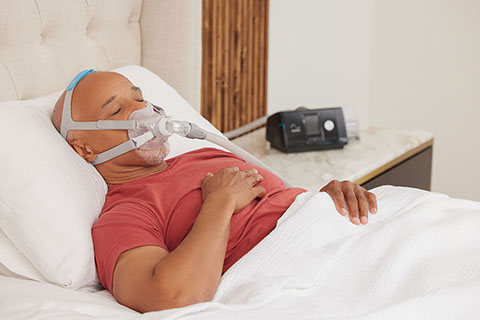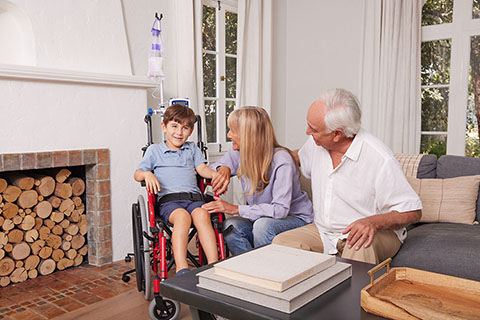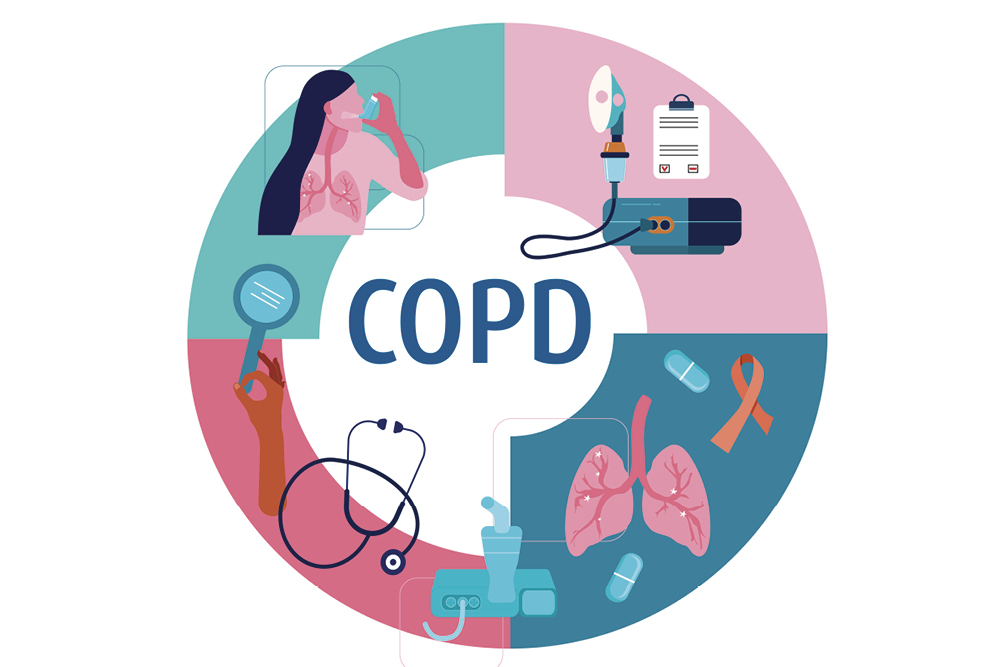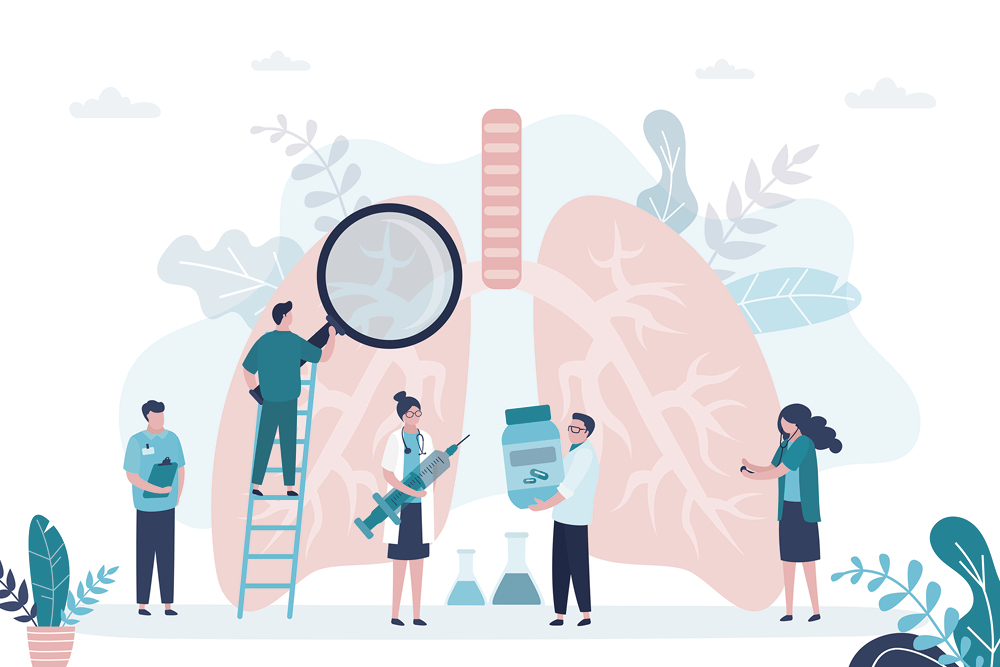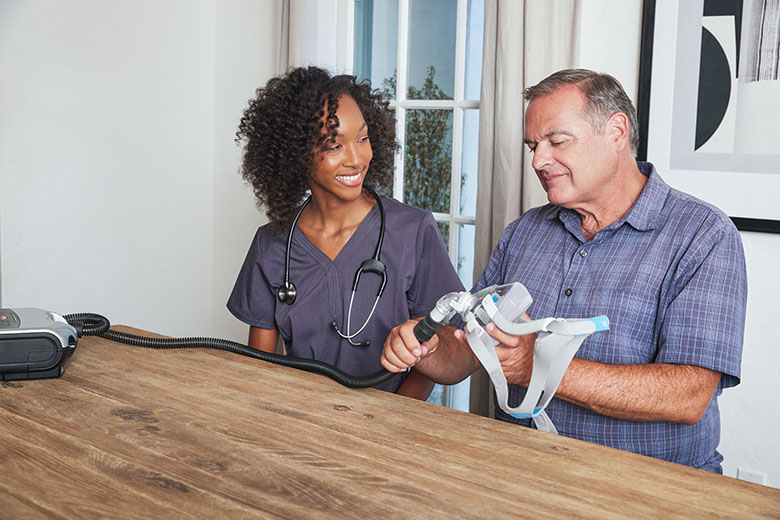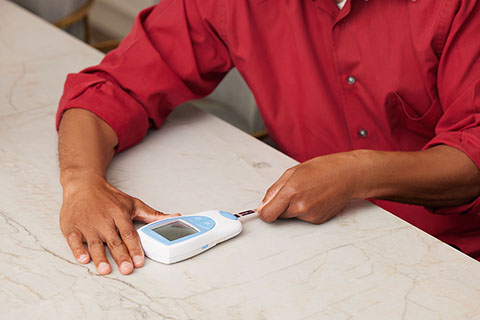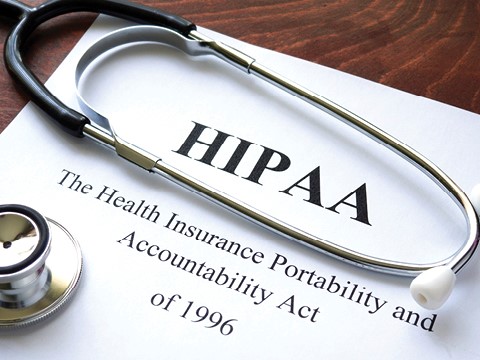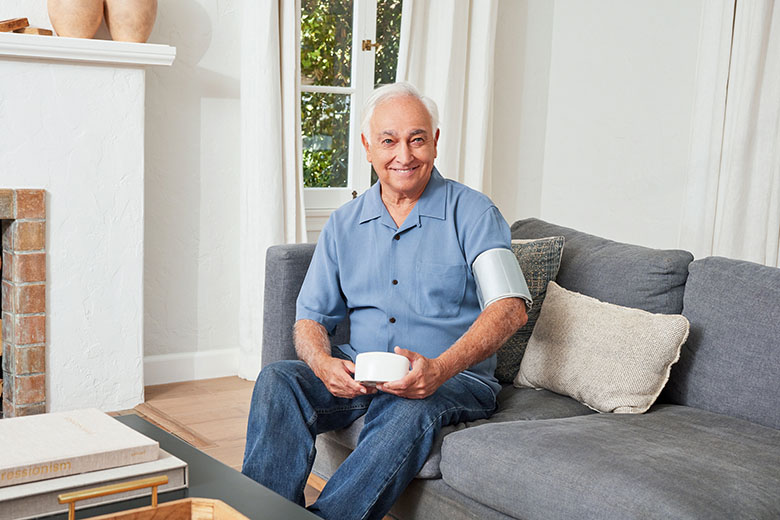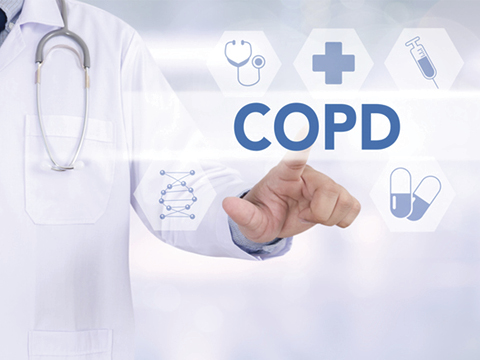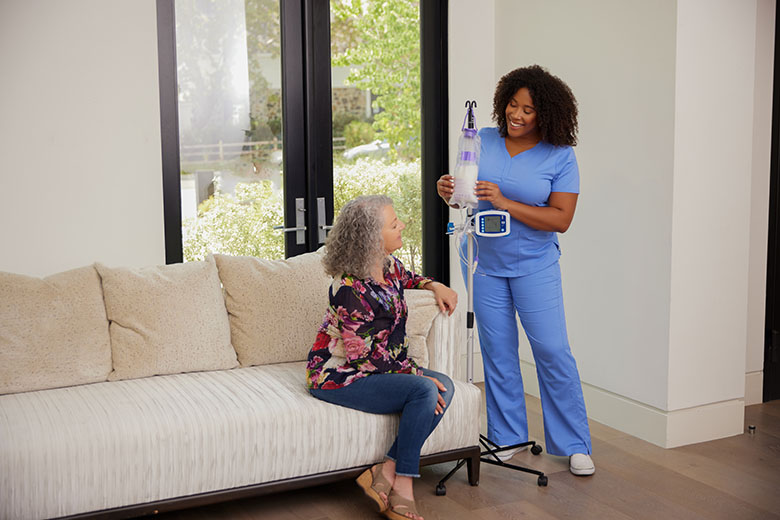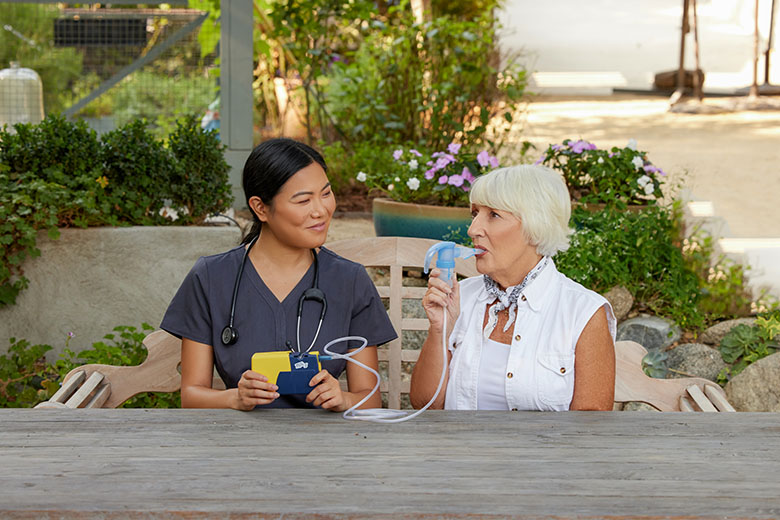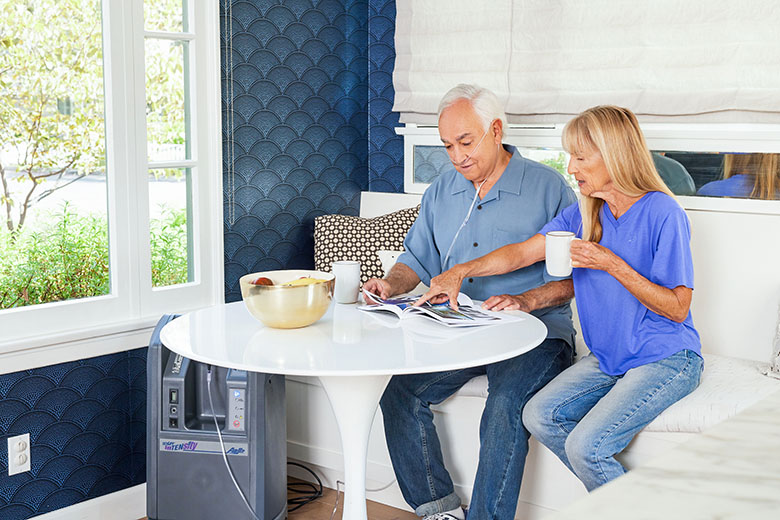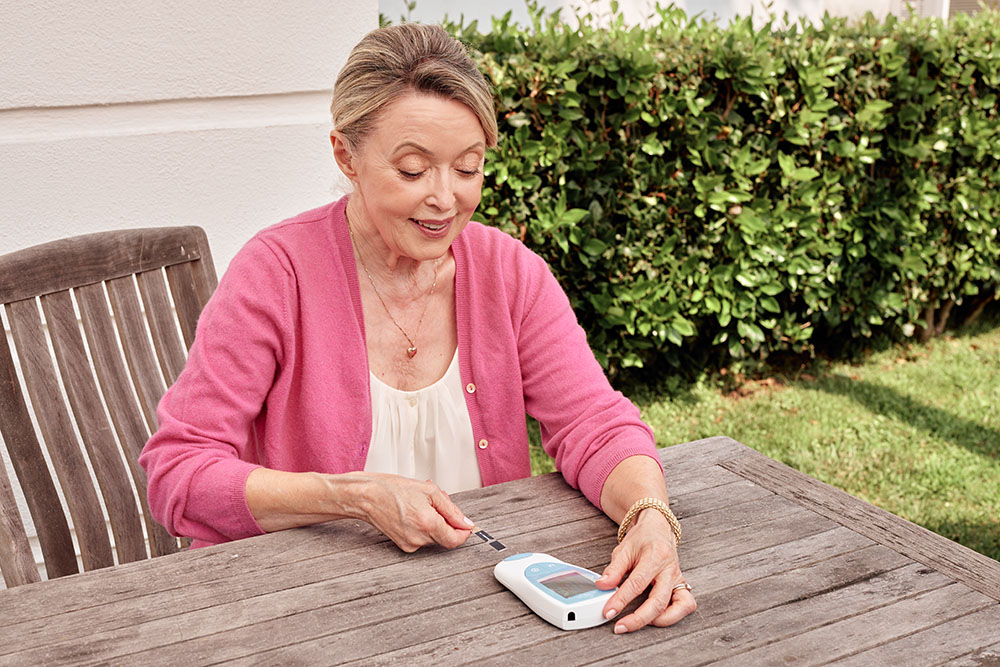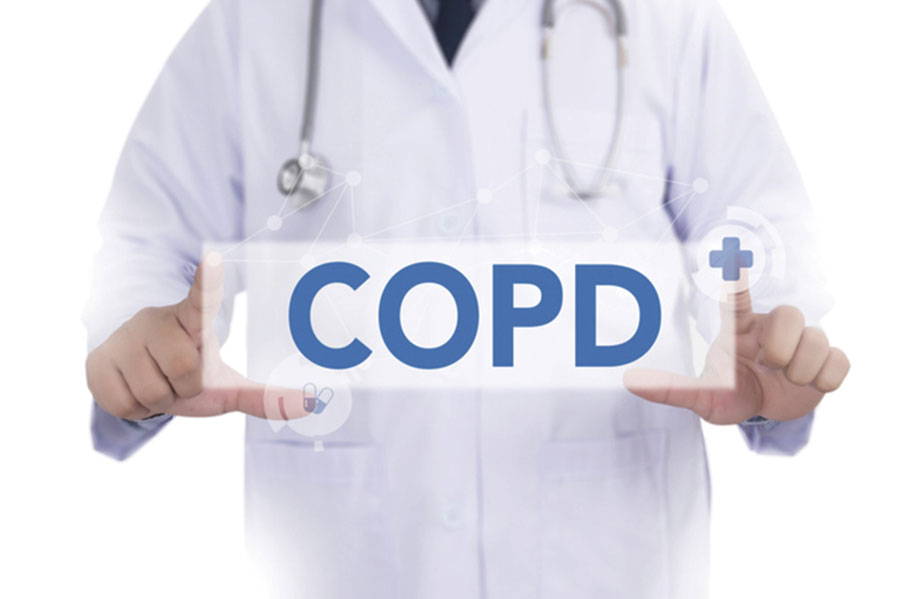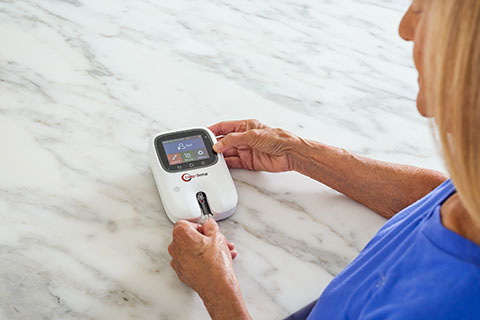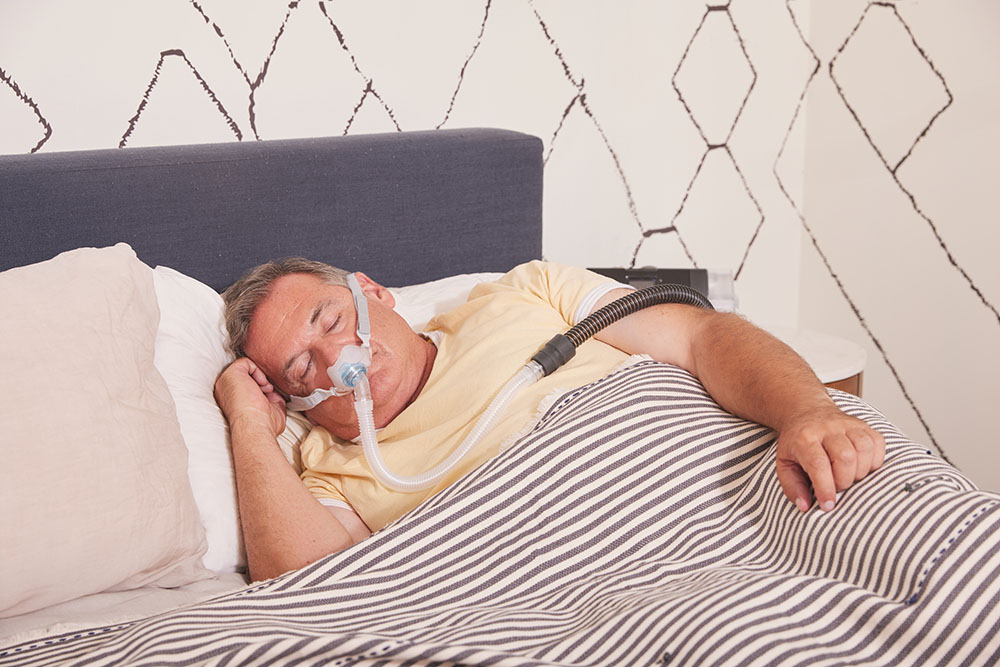Your Whole Health: Lincare Learning Center
February 09, 2026
Why Sleep Matters for Lung Health
Discover how quality sleep may support respiratory health, improve breathing, and reduce nighttime symptoms for better overall wellness.
READ MOREFebruary 02, 2026
Adapting Your Home for Oxygen Therapy
Learn how to safely set up and use oxygen therapy at home. Get practical tips to reduce risks, stay comfortable, and support daily independence with Lincare.
READ MOREJanuary 26, 2026
Link Between Sleep Apnea & Heart Health
Discover how sleep apnea impacts heart health and why early treatment matters. Learn about risks, symptoms, and how CPAP therapy can protect your heart.
January 19, 2026
The 4 P’s of Winter: How to Stay Safe & Healthy This Season
Winter can be beautiful, but for those with respiratory conditions, it brings unique challenges. Cold air, dry indoor environments, and seasonal illnesses can make breathing harder and may increase health risks. To help you prepare, remember the 4 P’s of Winter: People, Pets, Pipes, and Plants. These simple precautions can protect your health and home during the colder months.
READ MOREJanuary 12, 2026
Questions to Ask Your Doctor About Oxygen Therapy
If your blood oxygen saturation is consistently low due to a respiratory condition, your healthcare provider doctor may recommend supplemental oxygen therapy. Low oxygen levels, known as hypoxemia, can make it harder for your body to function properly1. Common symptoms may include shortness of breath, fatigue, confusion, rapid breathing, and bluish discoloration around the lips or fingertips2. Asking questions during your appointment is essential. It helps you understand your diagnosis, treatment options, and how oxygen therapy may improve your comfort, safety, and health-related quality of life.
READ MOREJanuary 05, 2026
Don’t Sleep on It, Identifying Sleep Apnea Early
Learn the early signs of sleep apnea, including snoring and other symptoms. Discover when to see a doctor and how a home sleep test can help.
READ MOREDecember 29, 2025
Nutrition Tips for Lung Health
Discover how a balanced diet supports lung function, reduces inflammation, and boosts energy for managing conditions like COPD, asthma, and pulmonary fibrosis.
READ MOREDecember 18, 2025
Low Oxygen Levels at Night
Nocturnal hypoxemia refers to a drop in blood oxygen levels during sleep1. While slight dips are normal, persisents or severe drops can signal underlying health issues. Oxygen saturation below 90% during sleep is considered abnormal and may lead to complications if untreated2.
READ MORENovember 21, 2025
From Fear to Empowerment: Navigating Tracheostomy Care as a Caregiver
Caring for a loved one with a tracheostomy can feel overwhelming at first. The unfamiliar equipment, medical terminology, and responsibility can stir up fear and uncertainty. But with the right support, education, and mindset, caregivers can move from feeling anxious to empowered, playing a vital role in their loved one’s care and quality of life.
READ MORENovember 17, 2025
DME Made Easy: Essential Home Health Equipment Through Lincare
When it comes to managing your health at home, having the right tools and support is essential. That’s where Durable Medical Equipment (DME) comes in. DME refers to medical devices and supplies that are designed for repeated use, providing long-term support for individuals recovering from illness, managing chronic conditions, or living with mobility challenges.
READ MORENovember 04, 2025
Understanding the INR Blood Test & Results
If you or a loved one is on anticoagulant therapy like warfarin, you’ve likely heard of the INR blood test. But what exactly is it and why is it so important?
READ MOREOctober 29, 2025
Breathe Easier: How Houseplants May Support Respiratory Health at Home
For individuals managing chronic respiratory conditions such as COPD, asthma, or sleep apnea, indoor air quality is more than a comfort issue; it’s a health priority. Patients using oxygen therapy or CPAP machines may spend extended time indoors, where air pollutants can exacerbate symptoms. Fortunately, nature offers a beautiful and low-maintenance solution: air-purifying houseplants.
READ MORESeptember 19, 2025
Protecting Brain Health: A Potential Overlooked Link Between Untreated Sleep Apnea & Memory Loss
Sleep is essential for brain health, yet millions of people unknowingly suffer from a condition that disrupts it night after night—Obstructive Sleep Apnea (OSA). While OSA is often associated with snoring and daytime fatigue, emerging research reveals a potentially more alarming consequence: memory loss and cognitive decline.
READ MOREAugust 15, 2025
Breathe Easier: How to Track Wildfires & Air Quality with AirNow
As wildfires become more frequent and intense across the U.S., patients with respiratory conditions like COPD, asthma, and sleep apnea face increased health risks. Smoke from wildfires contains fine particles and harmful gases that can aggravate breathing problems, trigger flare-ups, and reduce oxygen levels. That’s why staying informed about air quality is more important than ever.
READ MOREJuly 29, 2025
PAP Therapy Compliance: Navigating the first 90 Days and Beyond
Beginning CPAP (Continuous Positive Airway Pressure) therapy may seem daunting, but with effective strategies and proper education, you can achieve compliance and improve your sleep health. Here are some essential tips to guide you through the initial 90 days of therapy and beyond.
READ MOREJune 23, 2025
Managing Your CPAP Humidifier: Seasonal Adjustments for Optimal Comfort
For those living with sleep apnea, a CPAP (Continuous Positive Airway Pressure) machine can be a life-changing device, allowing for restful sleep and improved health-related quality of life. One critical component of your CPAP setup is the humidifier, which helps to add moisture to the air, making it easier to breathe and enhancing your therapy experience1. As the seasons change, so do the humidity levels in our environment. Here’s how to effectively manage your CPAP humidifier and make seasonal adjustments for optimal comfort.
READ MOREJune 16, 2025
Understanding How to Navigate Heat & Humidity When Living with COPD
As summer approaches, the rising temperatures and increased humidity can pose significant challenges for individuals living with respiratory conditions like Chronic Obstructive Pulmonary Disease (COPD). It’s essential to take proactive measures to manage your condition effectively during the hotter months.
READ MOREJune 03, 2025
SleepCircle® Mobile App: Your Partner in PAP Compliance Success
In the journey towards better sleep health, consistent compliance with Positive Airway Pressure (PAP) therapy is crucial. Recognizing this, Lincare now offers an innovative mobile application called SleepCircle®. This easy-to-use app is designed to empower PAP patients by providing tools that facilitate successful therapy experiences that may lead to improved health-related outcomes.
READ MOREJanuary 31, 2025
Embracing Convenience: Introducing Paperless Billing Enrollment in Our Patient Portal
In our continuous commitment to improve our patients' experience, we are excited to enhance our services with paperless billing. This feature allows for a more efficient and environmentally friendly way to manage your healthcare payments. You will receive your billing statements electronically to ensure patients have quick and easy access to their billing information, making it easier to keep track of expenses while reducing paper waste. We believe this feature will streamline patient experience and support our goal of providing exceptional care.
READ MOREDecember 13, 2024
Understanding Medicare Part D 2025 Updates: A Patient's Guide
As we approach the year 2025, significant updates to Medicare Part D are on the horizon. These changes aim to make prescription drug coverage more accessible and affordable for beneficiaries. Let's break down the updates from a patient perspective, focusing on the new coverage phases and payment options.
READ MOREDecember 11, 2024
Snow Shoveling Safety: Protect Your Health This Winter
Winter brings beautiful snow-covered landscapes, but it also poses certain challenges and safety risks, especially when it comes to snow shoveling.
READ MOREDecember 02, 2024
Why Your Long-Term Care Facility Needs Integrated Respiratory Therapy
Modern healthcare must evolve to meet the changing needs of patients and long-term care facilities.
READ MOREOctober 22, 2024
Cracking the Code of Your Sleep: A Guide to Understanding Your Sleep Study Results
For individuals who have undergone a diagnostic sleep study, also known as a polysomnogram, you might be eager to understand the results and what they mean for your sleep and overall health. A Polysomnogram records your brain waves, oxygen levels in your blood, heart rate and breathing during sleep. Additionally, they measure any eye or leg movements throughout the night. Sleep study reports can often be filled with technical jargon and confusing terms, making it difficult to decipher what all the numbers and graphs really mean.
READ MOREOctober 14, 2024
Enhancing Comfort & Functionality with Nasal Cannulas
Explore the proper use and comfort tips when using nasal cannulas during oxygen therapy.
READ MOREOctober 11, 2024
Essential Durable Medical Equipment (DME) for a Smooth Transition from Hospital to Home Care
Discover the essential durable medical equipment you may need for a smooth transition from the hospital to back home. Learn about wheelchairs, hospital beds and more.
READ MOREAugust 30, 2024
Feeding Your Heart: A Guide to Heart-Healthy Superfoods
Discover the benefits of heart-healthy foods and learn how to make smart dietary choices for a healthier heart on our blog.
READ MOREAugust 26, 2024
How to Clean & Maintain Your Nebulizer for Optimal Performance
Learn the easy steps to take to clean your nebulizer supplies for optimal performance. Keep your nebulizer in top condition with these cleaning tips
READ MOREAugust 26, 2024
Ensure Safety & Stability at Home After Hospital Discharge
At the time of the hospital discharge, you are often in a hurry to get back home after a medical procedure or illness. Here are some discharge tips that will help you stay safe at home.
READ MOREAugust 20, 2024
Breathing Easier: A Guide to Quitting Smoking with COPD
Learn tips and tools to help you quit smoking with COPD. Start your journey towards better lung health today.
READ MOREAugust 08, 2024
How to View Previous Billing Statements
Follow these step-by-step instructions to view previous billing statements within Lincare's Patient Portal. To get started, navigate to the billing tab.
READ MOREJuly 26, 2024
Women's PAP Masks for a Comfortable Night Sleep
Explore PAP masks designed specifically for women. These masks feature smaller sizes, feminine designs, and comfortable materials for a restful night's sleep.
READ MOREJuly 25, 2024
Navigating Concentrator Checks: What to Expect & How to Prepare
Gain an understanding of the importance of concentrator checks for your equipment and what to expect during your next visit.
READ MOREMay 03, 2024
Ways to Improve Indoor Air Quality for Better Respiratory Health
Indoor air quality plays a significant role in our respiratory health. Poor air quality can contribute to various respiratory issues, from allergies and asthma to more serious conditions like COPD.1 Fortunately, there are several ways you can improve the air quality in your home to promote better respiratory health.
READ MOREMay 02, 2024
Virtual PAP Setups: Tips, Tricks, & Tools for a Successful Session
Lincare provides a virtual solution for scheduled PAP setups, allowing patients to receive equipment and supplies education from the comfort of their own homes. This service is especially helpful for individuals who have limited access to reliable transportation, face scheduling difficulties during business hours, or have mobility issues.
READ MOREMarch 28, 2024
How To Combat Dryness Due to Oxygen Therapy
Are you or someone you know undergoing oxygen therapy? While this form of treatment can greatly benefit those with respiratory issues, it can also cause discomfort due to dryness in the nose, mouth, and throat. However, with a few simple measures, you can make your oxygen therapy experience more comfortable and less irritating.
READ MOREMarch 27, 2024
Caring for the Caregiver Tips for Managing Caregiver Burnout
As a caregiver, caring for a loved one can be selfless and rewarding. However, it can also lead to neglecting one’s own needs, resulting in physical, emotional, and mental exhaustion. Caregiver burnout is a real concern that needs to be addressed. In this blog, we will discuss some effective strategies for managing caregiver burnout and prioritizing self-care.
READ MOREMarch 19, 2024
The Patient Portal Is Now Live!
The Lincare team is excited to announce our new Patient Portal is Now Live! As always, our staff is committed to providing the best customer service and care available. The Patient Portal will help you better manage your treatment with everything you need in one place.
READ MOREMarch 14, 2024
How to Register in Patient Portal
These instructions provide step-by-step details, with images, to assist you with the registration process of Lincare's Patient Portal.
March 14, 2024
How to Recover Username and/or Password in Patient Portal
These instructions provide step-by-step details, with images, to assist in recovering your username and/or password in Lincare's Patient Portal.
February 12, 2024
Navigating the Role of Being a Caregiver
Discover practical advice and helpful tips on navigating the role of a caregiver. Find the support and guidance to make the journey smoother and provide better care for your loved ones.
READ MOREJanuary 26, 2024
Digitalization at Lincare: How to Use QR Codes
QR codes, also known as Quick Response codes, have gained popularity in recent years due to their ability to store large amounts of information in a small space. This invention was created in 1994 by a Japanese company called Denso Wave.1 Many businesses, including Lincare, have started utilizing QR codes to enhance their service and improve customer experiences. In this blog, we will explore how Lincare is using QR codes and how they can be beneficial for both the company and our patients.
READ MOREJanuary 11, 2024
Hypertension: The Silent Killer
Hypertension, also known as high blood pressure, is often referred to as the “silent killer” because it typically has no symptoms but can inflict serious damage to our health if left untreated. In this blog, we will discuss the importance of recognizing and managing hypertension to prevent the potential consequences it can have on our overall well-being.
READ MOREJanuary 11, 2024
Understanding the Basics of Your Lungs
Our lungs are incredible organs that have a vital role in our respiratory system. They allow us to breathe in oxygen and exhale carbon dioxide, enabling our bodies to function properly. Understanding how our lungs work and how to care for them is essential for maintaining good respiratory health. In this blog, we will dive deeper into the intricacies of the lungs and provide some tips on keeping them healthy.
READ MOREDecember 19, 2023
Understanding the Relationship between Adherences to CPAP Treatment & the Risk of Recurrent Cardiovascular Events
Obstructive sleep apnea (OSA) is a common sleep disorder that affects a significant portion of the population. Continuous positive airway pressure (CPAP) treatment is considered the gold standard for managing OSA and minimizing its associated cardiovascular risks. However, a recent article published in the Journal of the American Medical Association (JAMA) highlighted the crucial role of adherence to CPAP treatment in lowering the risk of recurrent cardiovascular events among OSA patients. This article will explore the key findings presented and discuss the implications for healthcare providers and OSA patients.
READ MOREDecember 13, 2023
Preparing for the Holiday Season: A Checklist for Respiratory Patients
The holiday season is a joyful time of year for many, filled with festivities and gatherings. For individuals with a respiratory condition, it may require some extra preparation and precautions to ensure a safe and enjoyable holiday experience. In this blog post, we have put together a helpful checklist to assist respiratory patients in navigating the holiday season with ease. Let’s make sure you have a healthy and enjoyable holiday!
READ MORENovember 08, 2023
Dealing with COPD During Cold Weather: Tips & Strategies
Chronic Obstructive Pulmonary Disease (COPD) is a chronic respiratory illness that affects the lungs, causing breathing difficulties and other respiratory symptoms. People with COPD often experience exacerbations or flare-ups during the cold weather. If you or someone you know is living with COPD, here are some tips and strategies to help cope with the condition during the cold months.
READ MORENovember 02, 2023
Spirometry Testing: Understanding the Basics
If you have ever gone to the doctor with a respiratory ailment, chances are that you have undergone spirometry testing. Spirometry is a simple and widely used tool for assessing lung function. In this article, we will explore what spirometry testing is, how it is performed, and its significance in managing lung health.
READ MOREOctober 17, 2023
Get To Know Your Equipment: Oxygen Concentrator
Oxygen Concentrators are medical devices that may be rented or sold and require a valid prescription1. Whether you are a medical professional or someone in need of supplemental oxygen, it is important to understand the basics of oxygen concentrator equipment. Here we will provide a beginner's guide to the oxygen concentrator.
READ MOREOctober 16, 2023
High-Frequency Chest Wall Oscillation Therapy: Common Misconceptions
High-Frequency Chest Wall Oscillation (HFCWO) therapy is an innovative treatment method that aims to improve lung function and respiratory clearance in patients with various respiratory conditions. Although HFCWO therapy is an effective approach to managing chronic lung conditions, there are misconceptions about HFCWO therapy and how it works.
READ MOREOctober 02, 2023
COPD Awareness - Understanding the 4 Stages of COPD
Chronic obstructive pulmonary disease, or COPD, refers to a group of diseases that cause airflow blockage and breathing-related problems. It includes emphysema and chronic bronchitis. COPD affects approximately 16 million Americans.1 It is essential to understand the different stages of COPD to identify the disease progression, manage symptoms effectively, and receive appropriate care.
READ MORESeptember 29, 2023
Home Sleep Testing: A Convenient Solution for Sleep Disorders
Sleep disorders like Obstructive Sleep Apnea (OSA) can significantly impact a person’s well-being and overall health.1 Traditional methods of diagnosing these conditions involve spending a night at a sleep lab while connected to various monitoring devices with professional oversight throughout the study. With new technological advancements, a patient now has the option to conduct Home Sleep Testings (HST) in the comfort of their own homes. Let’s explore the benefits and processes of home sleep testing.
READ MORESeptember 28, 2023
Conquer Your Sleepiness: Understand the Epworth Sleepiness Scale
The Epworth Sleepiness Scale (ESS) is a widely used tool to measure daytime sleepiness in individuals. It consists of a simple questionnaire asking individuals to rate their likelihood of falling asleep in various real-life situations, such as watching TV, sitting, reading, or sitting in a car while stopped for a few minutes in traffic.
READ MORESeptember 27, 2023
Navigating Original Medicare Denials & Appeals
Dealing with Original Medicare denials can be frustrating and overwhelming, but it is important to remember that you have options. In this short article, you will gain a basic understanding of Original Medicare denials, and insights into the appeals process. This article outlines the specifics of Original Medicare, also known as Traditional Medicare or Fee-For-Service Medicare and does not apply to any Medicare Advantage Health plans. Let’s dive in!
READ MORESeptember 26, 2023
Breath Better, Live Better: Effective COPD Breathing Exercises
Breathing exercises can benefit individuals with Chronic Obstructive Pulmonary Disease (COPD) by improving lung function, reducing breathlessness, and increasing oxygen intake.1 These exercises can help strengthen the respiratory muscles, improve the efficiency of breathing, and promote better airway clearance. By practicing breathing exercises regularly, individuals with COPD can enhance their lung capacity and reduce the frequency and severity of symptoms.
READ MORESeptember 25, 2023
When to Replace Your CPAP Supplies
For individuals with sleep apnea, continuous positive airway pressure (CPAP) therapy can play an essential role in improving sleep quality and improving your overall health. However, it is important to understand that maintaining the effectiveness of CPAP therapy requires proper cleaning and regular supply replacement. Let's look at what you need to know to keep your PAP device functioning at its peak performance.
READ MORESeptember 25, 2023
Refresh Your CPAP: The Complete Guide to Cleaning Supplies
Learn how to effectively clean and maintain your CPAP supplies with our expert tips and resources. Keep your equipment germ-free and extend its lifespan with proper cleaning techniques. From daily maintenance to deep cleaning, we’ll guide you through the process step-by-step. So, breathe easy and get the most out of your CPAP equipment with our help.
READ MORESeptember 19, 2023
The Right PAP Mask for Your Sleeping Position
If you have been diagnosed with sleep apnea and need to begin using a PAP machine, choosing the right PAP mask is one of the most important factors to consider. It can be daunting, especially with the variety of options available in the market today. However, selecting the right mask is essential for comfort and effective therapy. Considering your sleeping position while choosing a PAP mask is crucial, as this can significantly impact your overall experience.
READ MOREAugust 21, 2023
Empowering Independence: Navigating Life With Powered Mobility Devices
Powered mobility devices have been transforming the lives of many individuals with mobility impairments. These devices, which include powered wheelchairs and scooters, are designed to help people gain independence and improve their health-related quality of life. From social engagements to increased physical activity, there are numerous benefits to using power mobility devices.
READ MOREJune 20, 2023
Planning Your Next Adventure on Oxygen
Lincare provides travel assistance with your oxygen as one of our essential services to our existing oxygen patients. To travel safely with portable oxygen or to ensure a stationary unit is available at your long-term destination, it's important to coordinate with your local center to plan your travel arrangements. We will assist you in coordinating with local Centers along your travel route.
READ MOREMay 19, 2023
Advantages of Non-Invasive Ventilation
Chronic respiratory failure is a condition that makes it difficult for your body to maintain normal oxygen and carbon dioxide levels. Many diseases may contribute to chronic respiratory failure, including chronic obstructive pulmonary disease (COPD), thoracic restrictive diseases (TRD), and neuromuscular diseases (NMD). Non-invasive ventilation may assist with minimizing symptoms associated with these respiratory disorders and assist with improving your health-related quality of life.
READ MOREMay 12, 2023
The Era of PAP Classes: What Can I Expect?
Discover what to expect during a PAP class. Our expertly designed PAP classes can connect you with other users who share in your challenges and experiences, providing you with a valuable educational experience. Join our PAP class today and take the first step towards better sleep and a healthier, happier you!
READ MOREMay 04, 2023
The Power of Clean Hands
Handwashing is crucial for maintaining health and preventing the spread of diseases. Proper hand hygiene can help reduce the risk of infections and diseases, especially those that can be transmitted through hand-to-hand contact. It is essential to know the right techniques for washing your hands to get the best protection.
READ MOREApril 27, 2023
Why Overnight Oximetry Screenings Are Important for Obstructive Sleep Apnea Diagnosis & Treatment
Obstructive Sleep Apnea (OSA) is a common but serious disorder characterized by interrupted breathing during sleep, leading to low oxygen levels in the blood.
READ MOREApril 27, 2023
Sleep Your Way to a Healthier Life During Better Sleep Month
May is Better Sleep Month, a time to focus on the importance of good sleep habits and the role they play in our overall health and well-being. Getting enough sleep is essential for both physical and mental health, and it can have a significant impact on our daily lives.
READ MOREApril 26, 2023
Asthma: 5 Tips to Make Nebulizer Therapy Fun for Kids
As a parent, it is never easy to see your child struggling to breathe.
READ MOREApril 21, 2023
Oxygen Conserving Devices: Innovations in Oxygen Therapy
An oxygen conserving device (OCD) regulator is a medical device that attaches to an oxygen tank and can help patients conserve the amount of oxygen they are using in place of a traditional oxygen flow regulator. OCDs are particularly useful for people with respiratory illnesses such as Chronic Obstructive Pulmonary Disease (COPD), asthma, or other lung diseases that affect the body’s ability to take in oxygen.
READ MOREMarch 08, 2023
Promote the Importance of Healthy Sleep
As your sleep therapy partner, we celebrate all you do in the diagnosis and treatment of obstructive sleep apnea (OSA), which affects one in every five Americans.
READ MOREDecember 29, 2020
Pet Recommendations for Patients
While many of us love our furry friends and cannot imagine our lives without them, it is important to keep in mind that they do pose a threat to your home medical device. If your device is not stored properly or placed out of reach from your pet, your device could be at risk. Cords could be chewed; devices could be knocked off of lower tables or your device could be covered in pet hair or slobber.
READ MOREHow to Prepare Your Home Medical Device In Case of a Power Outage
Whether it's a hurricane or severe thunderstorm that knocks your power out, the effects it can have on your continued use of your home medical device, if not prepared properly, can be problematic.
READ MOREHow to Use Your Home Medical Device
Have you ever had a question about how to use your home medical device? Maybe even how to clean your device? You're not alone. When operating and maintaining your device, it is common to have questions.
READ MORE4 Things a Cardiac Monitor Can Tell Your Physician
Early intervention is critical in preserving the cardiac health of at-risk Americans. A cardiac monitoring device allows your practitioner to record your ECG in order to diagnose abnormalities. These devices enable you to be monitored at home, while maintaining your normal daily activities.
READ MORE5 Steps to Qualify for Home Oxygen Therapy
Oxygen Therapy presents an effective treatment option that can help relieve and manage symptoms, and make meaningful contributions in the lives of individuals with symptoms of various respiratory conditions - both acute and chronic, requiring oxygen therapy on either long or short-term basis.
5 Tips for Living with Congestive Heart Failure
There is no question that living with congestive heart failure can be challenging. Your heart must work harder to pump more efficiently and prevents your body from circulating the proper oxygen and nutrients needed to remain healthy.
READ MORE5 Common Respiratory Symptoms to Watch for in Children
With millions of children suffering from respiratory disorders in the United States, recognizing the signs and symptoms in children and infants can help.
READ MORE6 Facts About Negative Pressure Wound Therapy
Negative pressure wound therapy (NPWT) draws out fluid and bacteria from a chronic wound to help it heal. Your practitioner might recommend NPWT if you have a wound that either has not healed or has worsened over several weeks.
6 Tips to Make Your CPAP/Bilevel Machine Work for You
Sleep should be a time for recharging your body. However, when you suffer from sleep apnea, that can be challenging. CPAP and Bilevel devices are proven to help you breathe better while you sleep and alleviate your apnea symptoms. Still, it can take time to adjust to sleeping with a CPAP machine.
READ MOREAAC & Autism: The Benefits of Speech Therapy
Augmentative and alternative communication (AAC) devices can help those diagnosed with autism who are nonverbal or minimally verbal improve their expressive communication. Explore how AAC devices for autism can help people of all ages.
READ MOREBenefits of Tube Feeding
A well-balanced diet is crucial to maintaining good health and promote healing when you are sick.
READ MOREBenefits of Using a Mail Order Pharmacy
For many of us, undergoing treatment for a very serious but manageable illness means finding the best provider for your needs. As we understand patient’s needs may vary, we encompass a collective approach to ensure that the burden of obtaining your medication is lifted.
READ MOREBilevel PAP Treatment: Is It Right for You?
Explore what Bilevel is and if this form of sleep therapy may be more suitable for you.
READ MORECardiac Monitoring: What You Need to Know
Early intervention is critical to patient well-being.
READ MORECOPD Awareness - Close the Communication Gap
Communication is key to closing the gap between healthcare providers and patients.
READ MORECOPD Awareness - Here are the Facts
Chronic Obstructive Pulmonary Disease (COPD) is a chronic inflammatory disease that blocks airflow in your lungs. It makes breathing difficult and can prevent your body from getting the oxygen it needs.
READ MORECOPD Awareness - Identifying Symptoms & Risk Factors
The symptoms of COPD are usually constant and can slowly progress over many years. Learn about the common symptoms and risk factors of COPD.
READ MORECoughing Exercises
Because it can be difficult to cough up mucus—especially with a weakened cough reflex—it is important to drink enough fluids to keep your mucus thin and loose. Check with your practitioner to determine how much fluid you should drink daily to keep your cough effective.
READ MORECoughing Up Blood with Mucus
A simple cough during your day hardly warrants a second thought but coughing up blood with mucus should give you pause. It can be a frightening experience, especially if it has never happened to you before.
READ MOREDebunking 3 At-Home Ventilator Myths
If you are like most people, the thought of setting up a ventilator in your home may cause some anxiety. What exactly is a ventilator? How big is it? What happens when you are on a ventilator? These questions are typical for those learning about home ventilation care.
READ MOREDecember 29, 2020
Lincare® Discharge Services for Residents Who Chose Lincare®
It’s pretty safe to say that anyone who’s familiar with the world of discharge planning from a skilled nursing facility is acutely aware of the obstacles that skilled facility and nursing home discharge planners face on a daily basis.
READ MOREEating Well with COPD
Individuals with COPD can receive several benefits from proper nutrition. Depending on your condition, it can also influence the severity of COPD, so be sure to ask your practitioner which foods are best for you. Changing your eating habits will not cure COPD, but it can help you feel better mentally and physically.
READ MOREHow to Efficiently Use INR Test Strips
Heart disease is one of the leading health problems affecting Americans. Millions of people take anticoagulants such as Warfarin to protect their hearts and reduce the risk of blood clots and heart attacks.
READ MORENebulizer Compressors: What to Know
Whether you have COPD, emphysema, chronic bronchitis, asthma, or another respiratory condition, nebulizers are an effective way to administer respiratory medications.
READ MOREFall & Winter Advice for Respiratory Patients
Staying healthy is more important than ever for patients with chronic lung diseases. Some every day rules to help you stay healthy and minimize the risk of exposure to viruses and infections include washing your hands with soap and water for at least 20 seconds, sanitizing between washes, quit smoking, caring for your teeth and gums, avoiding germs, and considering vaccinations like the flu shots. There are even more considerations you may not have thought of to help you stay healthy.
READ MOREFlying with Your Portable Oxygen Concentrator
In today's world, undergoing oxygen therapy doesn't mean remaining housebound. With a range of portable oxygen treatment devices now available, you can carry your supply with you wherever you go, including in the air.
READ MOREThe Importance of Two-Factor HIPAA Authentication Requirements
At Lincare, when we contact our patients via telephone or portal about treatment and/or reimbursement (billing), we always ask you to verify two unique identifiers of your protected health information (PHI). That helps safeguard your privacy and ensure you get the best care. Correctly identifying you is the first step in delivering the safest treatment possible.
Home Oxygen Therapy: What You Need to Know
Home oxygen therapy is an effective therapy option for a variety of chronic respiratory conditions.
READ MOREIs a Disease Management Program Right for Me?
Disease management programs hold the promise of putting practitioners and patients back on the same page.
READ MORELow Oxygen Symptoms: Signs You May Not Be Getting Enough Oxygen
Few things can interrupt your health as much as insufficient oxygen levels. Every cell in your body requires it, and many different issues can make it difficult for you to breathe and circulate enough oxygen.
READ MOREPursed-Lip Breathing
You have probably noticed when shortness of breath occurs in an athlete during periods of exercise—they tend to blow the air out of their mouths by puffing out their cheeks . You may have also done this when you’ve exerted yourself. This is a normal response to shortness of breath, and it provides for a quick and easy way to improve breathing patterns.
READ MORERelaxation Techniques
The following relaxation techniques can help relieve the tension and anxiety that can accompany difficulties with breathing.
READ MORESeasonal Allergies: Preparing Your CPAP for Fall
If you use a CPAP machine to help your sleep apnea, irritation caused by allergic reactions can significantly disrupt your therapy. While certain allergies can impact you year-round, others are seasonal and can hit you hard at particular times of the year.
READ MORESeasonal Allergies: Preparing Your CPAP for Spring
Managing sleep apnea using a CPAP machine involves getting the device's pressure right and ensuring it fits comfortably. Throw springtime allergies into the mix, and you face a new set of challenges.
READ MORESleep Apnea Patients: Usage Compliance & Insurance Requirements
If you suffer from sleep apnea, you need to understand CPAP usage compliance and insurance requirements for your treatment.
READ MOREThe Benefits of Pulmonary Management in Long-Term Care
Patients with respiratory conditions such as chronic obstructive pulmonary disease (COPD) or emphysema often enter long-term care (LTC) facilities to receive the support they need.
READ MOREWhat Is the Best Sleeping Position for Sleep Apnea?
Obstructive Sleep Apnea (OSA) is a disorder that interrupts your breathing repeatedly- potentially hundreds of times-while you sleep. Common symptoms include snoring, headaches, fatigue, irritability, and difficulty paying attention.
READ MOREThe Importance of Weekly Testing & Your INR Values
Cardiac health is among the top concerns of healthcare providers in the United States.
The Patient's Guide to Enteral Therapy
Enteral Nutrition Therapy refers to the utilization of a feeding tube to deliver nutrition directly into the stomach or small intestine when a patient is unable to get adequate nutrition and hydration by mouth but still has a functioning gut.
READ MOREThe Patients Guide to Home Ventilator Care
Hospitals provide care in an acute environment. Due to advancements in healthcare, at-home non-invasive ventilator care is now readily available and an effective option for patients.
READ MOREThe Patient's Guide to Nebulizer Therapy
Whether your practitioner has given you a prescription or you're researching possible treatments for a respiratory problem, this comprehensive guide will walk you through the essentials of nebulizer therapy, also sometimes referred to as nebulization therapy.
READ MOREThe Patients Guide to Negative Pressure Wound Therapy
If you suffer from a chronic wound, such as a diabetic ulcer or pressure ulcer, your practitioner might recommend treating it with negative pressure wound therapy (NPWT). This guide explains what negative pressure wound therapy is and how it can help.
READ MOREThe Patient's Guide to Oxygen Therapy
Receiving a respiratory disease diagnosis can be life-changing. These conditions are common and often debilitating to those who suffer from them. Fortunately, oxygen therapy is an effective treatment option that can help control the symptoms of respiratory illness.
Continue reading to learn more about oxygen therapy, including how it works, who may benefit from it, and best practices for treatment.
Tips for Traveling with Your CPAP
Heading out on vacation is supposed to be relaxing and enjoyable. But for those who use a CPAP (continuous positive airway pressure) machine, traveling with their device can be an unnecessary source of stress. Fortunately, traveling with a CPAP does not have to be complicated. All you need is a little extra planning and preparation to ensure your trip goes smoothly.
READ MORETransitioning to 65 & Medicare Requirements
Signing up for Medicare at 65 is a standard process for many Americans, particularly those already retired. As you approach the enrollment period, you will likely have questions. It is essential that you understand the process and how switching to Medicare can save you time, energy, and, in certain instances, money.
READ MORETraveling & Remote INR Testing
If you recently began taking a blood thinner and completing regular INR testing, the prospect of traveling can be intimidating. Being far from your practitioner could be worrisome when it comes to your heart health. However, with today's advanced healthcare technology, mobile INR testing is a readily available and accessible solution. With an INR monitoring kit, you can track your levels anywhere.
CPAP Troubleshooting: A Guide to Better Breathing
Sleep apnea can be frustrating and disruptive, especially if left untreated. Fortunately, CPAP machines provide an effective treatment to help you breathe better during the night and relieve the side effects caused by sleep apnea.
READ MOREWalking Exercises
Start with short walks to strengthen your breathing and walking muscles.
What Is a Holter Monitor & How Can It Help?
If you are at risk for heart disease, your practitioner might recommend using a Holter heart monitor to test your cardiovascular health. Learn how a Holter monitor works and what it can do to help your cardiovascular health.
READ MOREWhat Is an HFCWO Vest & How Does It Work?
Your lungs consistently produce mucus. Production of mucus by your lungs , which is commonly amplified by respiratory diseases like chronic obstructive pulmonary disease (COPD) and bronchiectasis, or neuromuscular diseases such as Muscular Dystrophy and Cerebral Palsy. Mucus is essential to helping our bodies fight infections and inflammation. However, too much mucus in our airways can trap harmful bacteria, make it hard to breathe and successfully take inhaled medications.
READ MOREWhat Is COPD & How Do I Manage It?
Keeping your COPD under control requires ongoing effort. Fortunately, there are several effective ways to manage it.
READ MOREWhat Is High-Frequency Chest Wall Oscillation?
Dozens of respiratory and neuromuscular diseases impact millions across the United States. If you are one of those affected, you know how difficult it is to
breathe freely and live life to the fullest with these conditions. They can cause mucus build-up in the lungs, blocking the airways and impeding treatment. One effective home therapy for clearing your lungs and improving your breathing is high-frequency chest wall oscillation (HFCWO).
Why At-Home PT/INR Testing Is Important
Anticoagulants help reduce the risk of blood clots and heart attack but increase your risk of complications such as bleeding or stroke. Performing regular PT/INR testing from home can help you manage and prevent these dangerous side effects.
READ MOREWhy Is My CPAP Causing Shortness of Breath?
Obstructive sleep apnea (OSA) can be frustrating to live with, but it is a highly treatable condition.
READ MORE
